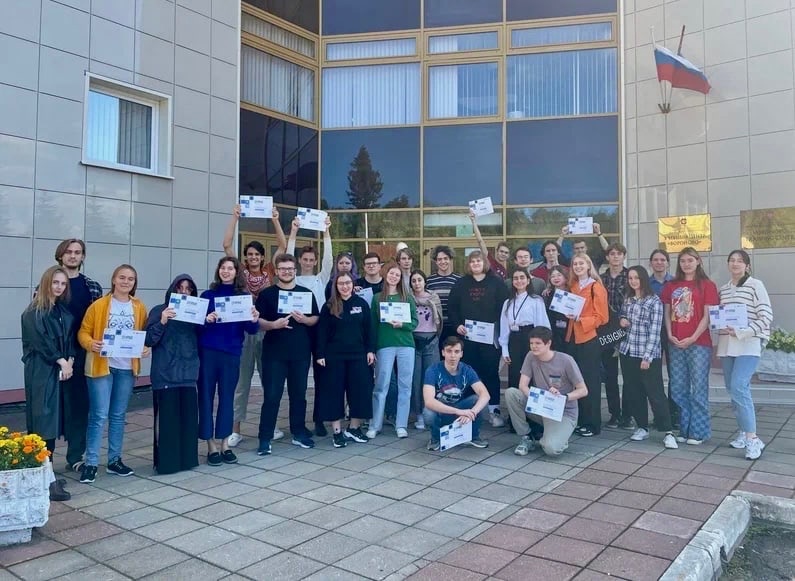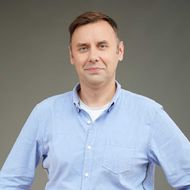Scientarium: Driving Young Scientists’ Development

In September, HSE University’s Voronovo Study Centre hosted ‘Scientarium: Young Researcher School’, a retreat for undergraduate and graduate students engaged in scientific activities. The Scientarium project started in 2021 in an online format, and was later held in the format of an educational retreat for the first time in autumn 2023. This year, the Young Researcher School brought together students from different universities across Russia.
The intensive educational programme was organised by the Centre for Student Academic Development and the Kruzhok movement of the National Technology Initiative. This year’s intensive course was attended by students from HSE University in Moscow and Nizhny Novgorod, Lomonosov Moscow State University, Moscow University of Science and Technology, Moscow Institute of Physics and Technology, and Plekhanov Russian University of Economics.
The work of every early-career researcher involves a large number of issues that require different competencies. Finding grants for individual or group research and communicating the subject of one’s research to specialist and general audiences are among the skills required, among other things, to be successful in an academic environment and build a personal brand as a scientist.
The participants of Scientarium discussed challenges and opportunities for acquiring soft skills useful to researchers. Lecturers and seminar leaders shared knowledge and tools to help young scientists build individual tracks of academic development. The students learned how to change their language register when translating scientific knowledge into popular science, what scientific volunteering is and how to do it, as well as how to feel confident in academia and the labour market.
On the first day of the workshop, students learned about scientific volunteering and developed projects to attract scientific volunteers to research initiatives. The lecturer for this session was Andrey Kozhanov, Director of HSE University’s Centre for Student Academic Development. At the next meeting, Yulia Falkovich, Director of the HSE University’s Centre for Scholarly Integration, spoke about soft skills. She stressed that every researcher needs not only to be able to write research papers, but also to competently present them to a wide audience.
Over the following two days, the participants worked on scientific publications, learned to create informative presentations for their talks, and had discussions about young scientists’ career development and more.

Andrey Kozhanov
‘The latest session of the Scientarium Young Researcher School showed that popularising scientific knowledge, translating from complex research language into popular science, and engaging people whose lives and activities are in no way connected with science are important topics to students of HSE University and many other top universities in Moscow,’ emphasised Andrey Kozhanov. ‘At this session, through discussion of various problems related to students’ further development in the academic field, we tried to explain which scientific communication tools, personal brand creation technologies, and skills/abilities for scientific popularisation of their field of knowledge are useful to modern scientists.’
Educational events were the focus of the retreat. Participants of the workshop presented their projects at the Pseudoscience Conference, where they mixed science with fantasy and fiction. Young researchers were asked to come up with a fantastical topic combining a scientific basis, well-known theories and everyday facts, and popular culture and esotericism, and present it in seven minutes with real facts and scientific theories.
The evening programme also included a viewing and discussion of The Department (Kafedra) television series about life in a university environment.
The educational workshop ended with the session “Young Researchers’ Best Practices: Problems and Their Solutions,” where students and graduate students proposed ways to overcome the difficulties faced by young scientists.

Sofya Kuzmenko, second-year student of the Bachelor’s in History of Art at HSE University
‘From the very beginning, I had fairly high expectations of the trip to Voronovo. I am happy that they were met! The invited speakers gave us lectures about the rules of academic writing in English, about job opportunities, about working with research volunteers, and about ways to publish your own material, which I think will be useful to anyone who wants to devote their life to science. At the retreat, I received answers to questions that used to scare me, and now I know much more—the process of self-realisation and creating my own brand does not scare me. I think that the experience and knowledge that I received at Voronovo will be useful when I start working in the research field.’

Angelina Vershinina, third-year student of the Bachelor’s in Business Informatics at HSE University
‘The Young Researcher School allowed me to have horizontal communication with equally interested young people in the scientific community, which is undoubtedly useful. The school’s speakers presented important new material in a convenient and interesting format.’

Kapitolina Untila, third-year student of the Bachelor’s in Fundamental and Computational Linguistics at HSE University
‘The Young Researcher School gave me a great boost of motivation to continue doing research. It was great to meet colleagues from HSE University and other universities, to be among like-minded people who sincerely love their work. I also liked that the entire trip was devoted to science-related topics—not only lectures, but also entertainment events. It’s a reminder that science is not boring.’
During the three days of the Young Researcher School, undergraduate and graduate students received a welcome impetus for further creativity, as well as knowledge to improve their skills. The organisers have already begun preparing the programme for the next educational workshop in the new year.

